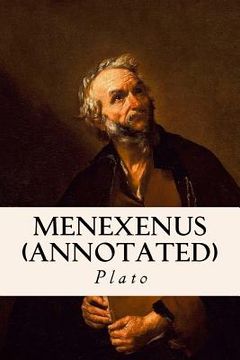Share
Menexenus (annotated) (in English)
Platón
(Author)
·
Createspace Independent Publishing Platform
· Paperback
Menexenus (annotated) (in English) - Jowett, Benjamin ; Plato
$ 4.79
$ 5.99
You save: $ 1.20
Choose the list to add your product or create one New List
✓ Product added successfully to the Wishlist.
Go to My WishlistsIt will be shipped from our warehouse between
Monday, June 24 and
Tuesday, June 25.
You will receive it anywhere in United States between 1 and 3 business days after shipment.
Synopsis "Menexenus (annotated) (in English)"
Menexenus is a classic philosophy essay credited to Plato. Whether the Menexenus is a genuine writing of Plato, or an imitation only, remains uncertain. In either case, the thoughts are partly borrowed from the Funeral Oration of Thucydides; and the fact that they are so, is not in favour of the genuineness of the work. Translated by Benjamin Jowett. The Menexenus is a Socratic dialogue of Plato, traditionally included in the seventh tetralogy along with the Greater and Lesser Hippias and the Ion. The speakers are Socrates and Menexenus, who is not to be confused with Socrates' son Menexenus. The Menexenus of Plato's dialogue appears also in the Lysis, where he is identified as the "son of Demophon", as well as the Phaedo. The Menexenus consists mainly of a lengthy funeral oration, referencing the one given by Pericles in Thucydides' account of the Peloponnesian War. Socrates here delivers to Menexenus a speech that he claims to have learned from Aspasia, a consort of Pericles and prominent female Athenian intellectual. Menexenus is unique among the Platonic dialogues in that the actual 'dialogue' serves primarily as exposition for the oration. For this reason, perhaps, the Menexenus has come under some suspicion of illegitimacy, although Aristotle's invocation of the text on multiple occasions seems to reinforce its authenticity. Much of the interest in the Menexenus stems from the fact that it is one of the few extant sources on the practice of Athenian funeral oratory, even though it parodies the medium.
- 0% (0)
- 0% (0)
- 0% (0)
- 0% (0)
- 0% (0)
All books in our catalog are Original.
The book is written in English.
The binding of this edition is Paperback.
✓ Producto agregado correctamente al carro, Ir a Pagar.

